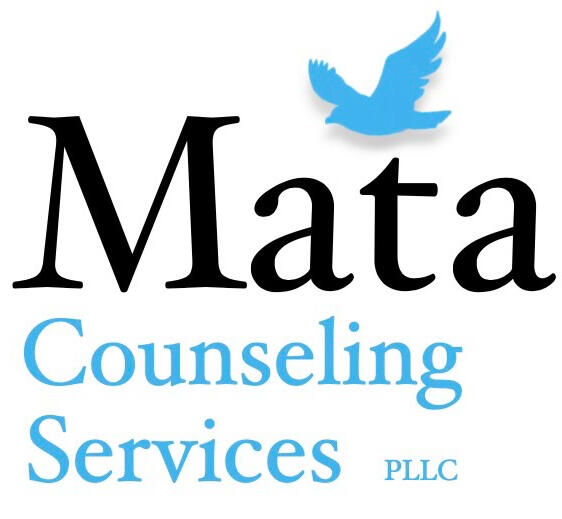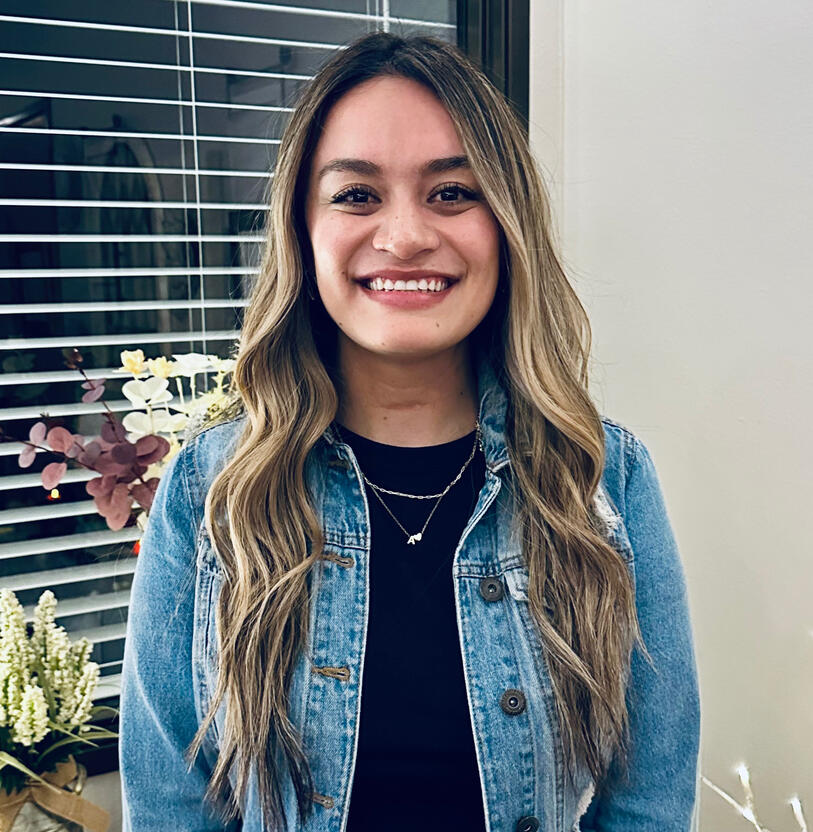
Thank you for taking an interest in Mata Counseling Services!
We are an adult and child counseling practice located in Flower Mound, TX.
Please note that we do not accept any form of health insurance.
All of our services are private pay only.
(Please refer to the "Insurance" tab at the bottom of this website for additional information)We provide individual counseling at our office for children (as young as three years old), tweens/teens, and adults. We currently do not provide marriage counseling.We specialize in trauma counseling as well as a wide array of other issues, including but not limited to, depression, anxiety, unhealthy coping, stress, self-confidence, peer/relationship issues, bullying, self-harm, anger, grief, eating disorders, ADHD, Autism, and school difficulties. We offer different counseling methods and create a treatment plan that is unique to each individual.Please text us for scheduling and availability. We provide a comfortable, friendly, and inviting environment conveniently located at 3605 Yucca Dr., Suite 101, Flower Mound, TX.
Text: (682) 465-2442 and you will receive a response promptly!
Texting is the best form of communication, as voicemails are not frequently monitored.
Rebeca Mata
I am the founder of Mata Counseling Services and a bilingual Licensed Professional Counselor and Board Approved Supervisor (LPC-S #64943) with the Texas Behavioral Health Executive Council and Texas State Board of Examiners of Professional Counselors. I oversee all day-to-day operations of the practice and welcome all individuals to come see us!I graduated from The University of North Texas (UNT) and earned a Bachelor’s degree in Abnormal Psychology & Criminal Justice, followed by a Master’s degree in Professional Counseling, with a 4.0 GPA and the distinction of Summa Cum Laude. Since then, I have been consistently practicing as a professional counselor for 17 years and have worked in the mental health field for 22 years.I am certified in Trauma Focused-Cognitive Behavioral Therapy (TF-CBT) and fully trained in Eye Movement Desensitization and Reprocessing (EMDR) Therapy. I am also a highly experienced CBT, DBT, and Activity/Play Therapist. I was trained directly by Garry Landreth, the founder of the "Center for Play Therapy" at UNT, which is the largest play therapy program in the world.In addition, I am an experienced Animal Assisted Therapist (AAT) and have rescued, trained, and worked with therapy dogs since 2010. I currently have an 11 year old Beagle mix therapy dog named Destiny and a 7 month old mixed breed therapy puppy in training named Benji. Both Destiny and Benji, partner with me at Mata Counseling Services to complement the above mentioned treatment modalities.Throughout my counseling career, I have worked for Denton County Juvenile Detention, Denton County Mental Health & Mental Retardation (MHMR) Center, The Children’s Advocacy Center for Denton County (CACDC), and other non-profit and private organizations. I have held various positions over the course of my career, including but not limited to, Licensed Professional Counselor-Supervisor, Qualified Mental Health/Mental Retardation Professional, Therapy Group Leader, Spanish Interpreter, Multidisciplinary Team Member in Child Abuse, Assistant Clinical Director, and briefly as Clinical Director, before I decided to dedicate several years of my career as an Equine and Animal Assisted Counselor (EAAC), and now as owner and founder of my private practice.As an EAAC, I worked at local farms and dedicated myself to providing professional counseling to survivors of trauma and military veterans as well as aiding in the rescue and rehabilitation of abused/neglected farm animals to serve as animal partners in treatment. I worked diligently to foster an environment that helped individuals feel safe enough to re-connect with themselves and establish a healing bond with horses, donkeys, goats, pigs, llamas, dogs, and other farm animals. The healing power of animals is inexplicable!During my professional career, I have had, and continue to have, the honor to treat U.S. soldiers, law enforcement, and first responders, and am truly humbled by this opportunity. I also have extensive experience treating survivors of trauma, such as severe physical and sexual abuse, sex trafficking/human trafficking, domestic violence, and other adverse life experiences.As a result of my expertise, training, knowledge, and experience, I am highly qualified in treating individuals struggling with Post-Traumatic Stress. I work hard to foster an environment that feels safe and comfortable enough to process traumatic experiences and lead to a place of healing and restoration.In working directly with countless survivors of trauma since the start of my career, I play a vital role in advocating for survivors seeking justice within the legal system. I provide fact and expert witness testimony and advocacy in civil and criminal cases for the Denton County District Attorney’s office and other legal entities.In addition to working with survivors of trauma, I also have extensive experience working with children, tweens/teens, and adults who are struggling with depression, anxiety, relationship issues, anger/aggression, low self-esteem, self harm, body image, mood dysregulation, school problems, and overall unhealthy coping skills.I am a LGBTQIA+ friendly counselor and also welcome individuals of all ethnic backgrounds and religious beliefs. I have the privilege to offer counseling services in Spanish as I have worked with the Latino community for many years and continue to do so as a professional counselor and strong advocate.
Camille Naval
I am a Licensed Professional Counselor (LPC #87847) with the Texas Behavioral Health Executive Council and Texas State Board of Examiners of Professional Counselors.As a licensed counselor at Mata Counseling Services, I offer individual counseling for children, teens, and adult females who are struggling with a variety of mental health and behavioral issues such as trauma, grief, anxiety, depression, self-harm, body image issues, unhealthy coping, anger, school problems, life transitions, multicultural issues, and domestic violence. Additionally, I am an LGBTQIA friendly counselor.My approach to counseling is derived from the Cognitive Behavioral Therapy (CBT) model with a specific focus on emotional reconnection, challenging and changing cognitive distortions, improving emotional regulation, and developing healthy coping skills to target current issues. I take pride in assisting and supporting individuals to build skills in emotional processing and management to allow them to fully express themselves and improve communication and relationships in their lives. In addition to CBT, I am also trained in Trauma Focused Cognitive Behavioral Therapy (TF-CBT) which allows for the healing and restoration of children who have had adverse life experiences (please read more about this therapy on our TF-CBT page). I provide an environment that is safe and peaceful to allow for this transformation to occur at the pace that the individual needs.I graduated from the University of North Texas with a Bachelor’s degree in Psychology and the University of Texas at San Antonio with a Master’s degree in Clinical Mental Health Counseling.
I have had the opportunity to work at The Children’s Bereavement Center of South Texas where I provided therapy to children who experienced grief and loss of loved ones. I am trained in incorporating expressive arts and play/activity therapy to allow children and adolescents to safely express their emotions and learn to heal.Furthermore, I have experience assisting survivors of domestic violence and their families through my work at the Battered Women and Children’s Shelter in San Antonio. I was able to witness how adverse childhood experiences can make a huge impact on a child’s self-esteem and perception of life. I counseled children and adolescents and helped them process their trauma by utilizing play therapy, expressive arts, and consulting with parents to provide psychoeducation and trauma support. At Mata Counseling Services, I am guided in providing support, advocacy, and testimony in the legal system, for survivors of trauma, as they seek the justice that they deserve.As an Asian American and member of the multicultural community, I find it important to understand an individual’s own perspective about their cultural upbringing and how it affects his/her life. My goal is for individuals to feel empowered as they create their own path towards healing and acceptance.
APRIL JANG
I am a Licensed Professional Counselor Associate (LPC-A #95346) with the Texas Behavioral Health Executive Council and Texas State Board of Examiners of Professional Counselors, and supervised by Rebeca Mata, M.Ed. LPC-Supervisor #64943. I earned my bachelor's degree in social work from New Mexico State University and my master's degree in clinical mental health counseling from Grand Canyon University.As a licensed counselor at Mata Counseling Services, I provide individual counseling for children, tweens/teens, and adults who are struggling with a variety of mental health and behavioral issues including, but not limited to, trauma, grief, anxiety, depression, self-harm, body image issues, unhealthy coping, anger, co-dependency, and school problems.My main approach to counseling is derived from the Cognitive Behavioral Therapy (CBT) model with a specific focus on emotional regulation, challenging and changing cognitive distortions, improving emotional connection with self and others, and developing healthy coping skills to target current issues. I am trained in Trust-Based Relational Intervention (TBRI), a trauma therapy method which utilizes Empowering Principles to address physical needs, Connecting Principles for attachment needs, and Correcting Principles to disarm fear-based behaviors. In addition, I am also trained in Motivational Interviewing (MI), an evidence-based program, which allows me to help others work through traumatic experiences to regain a sense of hope and happiness. MI allows for people to explore their feelings and find their own motivations in a safe and comfortable environment.I have had various work experiences in the mental health field. I worked at Probate Court in El Paso, TX, where I had the privilege of facilitating home visits, assessing, advocating, and ensuring a safe environment for both people with mental and physical disabilities. I also worked as a Community Youth Developer Coordinator, where I assisted children and adolescents in goal setting, developing mindfulness, healthy coping, and relationship skills. During this time, I witnessed the impact of a child’s environment and experiences on the developmental stages of their life.More recently, I am humbled to have had the opportunity to work with adolescent survivors of human trafficking at Paso Del Norte Center of Hope and a secure non-profit organization in Dallas, TX. I provided trauma-informed services and created a safe environment throughout their journey of recovery. I further provided crisis intervention services consisting of responding to the immediate needs of survivors of human trafficking. I am dedicated to helping individuals reach a sense of peace and security as they begin their journey towards healing. I am further interested and being guided by Rebeca Mata to provide support, advocacy, and testimony in the legal system, for survivors of trauma, as they seek the justice that they deserve.Lastly, as a member of the multicultural community, I find it important to understand an individual’s perspective on their cultural upbringing and how it affects his/her life. I intend to empower the uniqueness and story of each individual, while providing a safe place where they feel heard and understood.
CBT
Cognitive Behavioral Therapy (CBT) is a form of psychological treatment that has been demonstrated to be effective for a range of problems including depression, anxiety, anger, eating disorders, and other mental health issues. Numerous research studies suggest that CBT leads to significant improvement in functioning and quality of life for children and adults. CBT is an approach for which there is ample scientific evidence suggesting that the methods that have been developed actually produce change if the client is willing to put in the work.CBT is based on the following core principles:
1. Psychological problems are based on unhealthy or unhelpful ways of thinking.
2. Psychological problems are based on learned patterns of unhelpful/unhealthy behavior.
3. People can learn better ways of coping with stressors, thereby relieving their symptoms and becoming more effective in their lives.CBT treatment usually involves efforts to change thinking patterns.
These strategies might include:
• Learning to recognize and re-evaluate one’s thinking errors that are creating problems.
• Gaining a better understanding of the behavior and motivation of others.
• Using problem-solving skills to cope with difficult situations.
• Learning to develop a greater sense of confidence in one’s own abilities.CBT treatment usually involves efforts to change behavioral patterns.
These strategies might include:
• Facing one’s fears instead of avoiding them.
• Using role playing to prepare for potentially problematic interactions with others.
• Learning to calm one’s mind and relax one’s body.The counselor and client will work together, in a collaborative fashion, to develop an understanding of the problem and develop an individualized treatment plan utilizing a CBT approach.
TF-CBT
Trauma Focused Cognitive Behavioral Therapy (TF-CBT) is a structured, highly researched, and evidence-based treatment program designed for youth ages 3-18 years old who have significant emotional issues due to multiple or complex trauma, post-traumatic stress, domestic violence, fear, anxiety, depression, bullying, relationship/attachment issues, sexualized behavior issues, school problems, traumatic grief, shame, interpersonal trust, and/or externalizing behavioral issues.
TF-CBT incorporates trauma-sensitive interventions with cognitive-behavioral techniques and includes the child's non-offending caregivers in the treatment process for a more holistic healing approach. It includes skills for regulating thoughts, feelings, and behaviors, improving relationships, trauma processing, enhancing personal safety and boundaries, parenting skills, and improved family communication.According to randomized, controlled research, TF-CBT has shown to be superior for improving children's emotional and behavioral responses to trauma and other presenting issues. It is a structured treatment model that effectively improves a range of trauma-related outcomes in 8-24 sessions (with a weekly session commitment). As mentioned, TF-CBT effectively addresses trauma impacts, including affective, cognitive, and behavioral problems, as well as improves the participating caregiver’s personal distress about the child’s traumatic experience, and guides parents to more effective parenting skills for increased supportive interactions with the child.Although TF-CBT is highly effective for youth with post traumatic stress symptoms, a PTSD diagnosis is not required in order to receive this treatment. The federal government's Mental Health Services Administration has recognized TF-CBT as a Model Program due to extensive outcome data. The TF-CBT treatment program was originally designed to help children who experienced sexual abuse; however, research now shows that TF-CBT is effective for diverse, multiple and complex issues for youth of different developmental levels, and across different cultures.
emdr
Eye Movement Desensitization and Reprocessing (EMDR) is an extensively researched and effective method of therapy that demonstrates and proves that the mind can heal itself naturally- much like the body does.Much of this natural coping mechanism occurs during Rapid Eye Movement (REM) sleep. Most of the time your body routinely manages new information and experiences without you being aware of it. However, when something out of the ordinary occurs and you are traumatized by a distressing event, your natural coping mechanism can become overloaded. This overloading results in the disturbing memories remaining frozen in your brain. Such frozen memories and feelings are stored in the limbic system of your brain in a "raw" emotional form. The limbic system's traumatic network can be continually triggered when you experience events similar to the trauma you have been through, thus triggering those painful "raw" emotions.What does an EMDR session look like? As EMDR encourages the natural healing ability of your body, you will be asked specific questions about a particular disturbing memory. Eye movements, similar to those during REM sleep, will be recreated simply by asking you to watch your therapist's finger moving back and forth across your visual field. The eye movement will last for a short while and then stop. You will then be asked to report back on the experiences you have had during each of these sets of eye movements. Experiences during a session may include changes in thoughts, images, and feelings. With repeated sets of eye movement, the memory tends to lose its painful intensity and becomes a neutral memory. Throughout the session, I will support and facilitate your healing and intervene as little as possible to allow you to work through the traumatic memories in a safe environment.It is important to note that EMDR treatment is not a form of hypnosis and you can stop the process at any time. You are fully alert, wide awake, and in control of your experience. Most people experience and describe EMDR as a natural and empowering form of therapy.
Play/Activity Therapy
Play/Activity therapy is a method of therapy that uses play and other creative activities/games to help children deal with psychological issues and express their feelings more easily than using words. Play/Activity therapy is based on the principle that children will expose vulnerabilities and anxieties in their play and work towards solving their own issues given the right conditions and the freedom to play with limited instruction.A therapist will observe the child's play and note any recurring themes that may stem from trauma, anxiety, or depression. He/she can then guide the child in therapeutic activities to help them deal with whatever issues they may be facing. The therapist will also maintain rules and boundaries in the therapy session so that the child feels safe to explore difficult feelings in whichever way they choose (i.e. imaginative play, role play, arts/crafts, board games, puzzles, etc). The therapist may further utilize a more directive approach to therapy to help children relearn or change troubling and/or impulsive thoughts and behaviors. This can be done by offering healthy coping mechanisms, relaxation techniques, and/or new ways to think about or look at a situation from a child's perspective.Play/Activity therapy goals are all about helping children to become aware of their feelings and to express and communicate them in healthy and positive ways. It can help them to manage their anger, improve their self-control and impulse control, build healthy relationships, and work on increasing empowerment and confidence. It can also help them manage fear, anxiety and depression, as well as enhance their problem-solving skills.
Research shows that play therapy is indeed effective for children experiencing a wide range of issues (i.e. social, emotional, behavioral). Children who have experienced trauma, are facing life stressors, and are going through major transitions, are able to heal, integrate, and grow with a trained therapist, who understands the language of play."Children are resilient. Although children experience some unfathomable situations, they are able to persevere beyond adult understanding."
-Garry Landreth, 2012
AAT
Destiny and Benji are our therapy dogs at Mata Counseling Services. They were adopted by Rebeca Mata and their presence in the office varies between Tuesday-Thursday. Destiny and Benji are not in office on Mondays and Fridays to allow for them to rest, relax, and recharge. They are both very gentle, even-tempered, and LOVE everyone!Rebeca rescued Destiny (Beagle mix) from a local animal shelter in January 2019 and has been a therapy dog alongside Rebeca for 6 years. Destiny more recently participated in the largest national dog competition and took home first place & the title of "2024 America's Favorite Pet!" She is featured on the cover of Modern Dog magazine! You can see copies of the magazine in our lobby. If you are interested in a copy of the magazine, please let your counselor know. We are happy to gift you a copy while supplies last.Rebeca rescued Benji (mixed breed) from SPCA of Texas in February 2025 and she is currently training him to become a therapy dog. He mostly enjoys learning from Destiny and training with Rebeca. Benji is very intelligent and gentle. He is advancing very well in his therapy training as he is very motivated by treats and cuddles! He loves to play fetch, toys that squeak, go for walks, explore outdoors, and go to PetSmart (because he knows he gets a toy or treat every time)!Animal Assisted Therapy (AAT) is a goal directed intervention in which an animal (most commonly a dog) meeting specific criteria is an integral part of the treatment process. This therapeutic modality builds on the pre-existing human-animal bond and facilitates healing and rehabilitation in individuals with acute or chronic mental health issues.For many individuals, there is an innate desire to want to interact with and relate to a friendly animal, when this happens, a bond is formed, and this bond creates a calming state in the person. Research has validated what every pet owner already knows: Positive interactions with animals can reduce overall stress, tension, anxiety, and depression.In addition, animals can create enormous motivation in people and can be a vital component of success in treatment. Animal Assisted Therapy is believed to have many benefits such as an improved self esteem, better social and relationship skills, increased empathy and nurturing skills, and improved personal and social development. Dogs also provide mental and emotional benefits for people by stimulating contact with reality, promoting self-care, and improving physical well-being by feeling the emotion of happiness and relaxation.Recent AAT studies demonstrated that the simple act of petting or talking to an animal releases an automatic relaxation response; this response promotes the release of endorphins, serotonin, prolactin, and oxytocin- all hormones that play a vital part in elevating mood and promoting a calming effect. Research also shows that AAT increases mental stimulation which can be important in assisting to process traumatic and/or distressing memories in a safe environment with your therapist.
More Information
Please text (682) 465-2442 to inquire about counselor availability or request additional information aside from what is provided to you on this website.
Note: Texting is the best form of communication, as voicemails are not frequently monitored.Please note that we schedule patients on a first come, first served basis, so our availability can be very limited at times.Business Hours (by appointment only):
Monday-Friday: 2pm-9pm (last session is at 8pm)
Saturday & Sunday: ClosedEach counselor works a different schedule and has different availability within our business hours.Cost per Session:
Please text us for individual counselor rates.
Each counselor has a fixed rate.
We do not offer a sliding fee scale.Session Duration: 45-50 minutes
Frequency of Sessions: Once per week
Length of Treatment: Varies based on presenting issues and rate of progress
our policy on insurance
This information remains up to date:
All services are self pay only.
Mata Counseling Services does not accept any health insurance plans.
We are an out-of-network provider.Although out-of-network reimbursement is not guaranteed, a superbill may be provided to you upon request. It is your responsibility to verify your out-of-network reimbursement schedule.We do not assist with filing or disputing any claims or superbills that you choose to submit for our services.
Counseling fees are due prior to or at the beginning of your session even if submitting for out-of-network reimbursement.Most major credit cards, HSA/FSA cards, and cash are acceptable forms of payment. A card is required to be kept on file regardless of form of payment used for sessions.
Career Opportunities
Mata Counseling Services offers career opportunities to LPC’s and LPC Associates.To ensure we provide the utmost quality care, we only invest in top-notch professionals to build a solid reputation and ensure that every patient receives the care they need. Thus, the career opportunities at Mata Counseling Services are competitive.At a minimum, candidates must be available to work evenings, must demonstrate a working knowledge of trauma focused approaches, and an interest in treating adult and child survivors of complex trauma.Candidates must also demonstrate a desire to learn about the legal system and appreciate the importance of court advocacy and testimony.If you are interested in learning about our career opportunities, please email your resume and hours you are available to see patients to Rebeca Mata at [email protected]



















